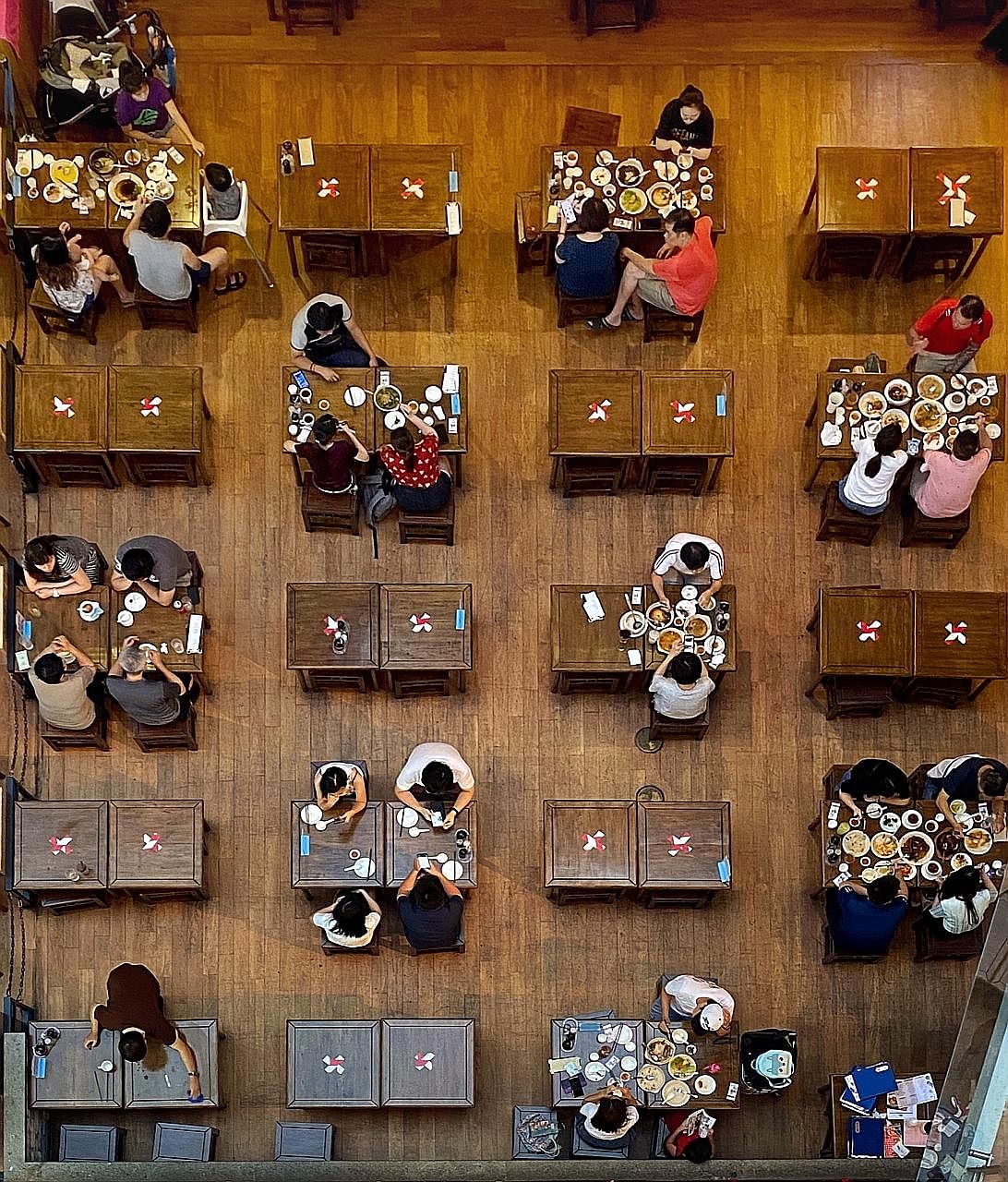SMEs take loans for immediate cash flow, long-term flexibility
5,000 firms borrow $4.5b from govt-assisted schemes to boost defences against Covid-19
Sign up now: Get ST's newsletters delivered to your inbox
Around 5,000 firms have borrowed about $4.5 billion from government-assisted schemes in recent weeks as they shore up their defences against the impact of the pandemic.
Some companies told The Straits Times that they are using the funds to meet short-term costs like rent and salaries, while others are focused more on preparing for the recovery.
About 80 per cent of companies that have taken out loans are micro and small enterprises with less than $10 million in annual revenue.
About 22 per cent of companies that have taken out loans operate in wholesale trade, 15 per cent are in manufacturing and 14 per cent in construction.
The remaining firms are in other sectors such as services and retail, Trade and Industry Minister Chan Chun Sing noted on May 27.
The Government is taking a 90 per cent risk share on loans under schemes overseen by Enterprise Singapore (ESG), such as the SME Working Capital Loan and the Temporary Bridging Loan Programme (TBLP) until March 31 next year.
Restaurant chain Dian Xiao Er has taken out a $2 million loan from OCBC Bank under the TBLP to be used for working capital and upgrading its technology systems.
The bulk of it will go to operating expenses such as rental, staff costs and payments to suppliers, said founder Samuel Yik.
It is also seeking a further $3 million loan from another bank under the same scheme, as part of longer-term contingency plans.
"Nobody knows how long this Covid-19 outbreak will last; it could be as long as 18 months, 24 months, and it is better for us to be prepared for the long term, which is why we are applying for another loan in case we need more (funds)," Mr Yik said.
Snack manufacturer The Golden Duck is also making use of government-assisted loans.

Social distancing measures taken at Dian Xiao Er in Jurong Point, in March. The restaurant chain has taken out a $2 million loan under the Temporary Bridging Loan Programme to be used for working capital and tech upgrading.
ST FILE PHOTO
Chief strategy officer Chris Hwang said the company borrowed $500,000 under the SME Working Capital Loan scheme in March, before the TBLP was extended to businesses across all sectors as part of the Solidarity Budget in April. The firm is borrowing a further $500,000 under the TBLP, with the funds expected early this month.
"We took out these loans for both defensive and offensive reasons - with the pandemic we expected a large impact on revenue, so we needed to brace ourselves for the impact on cash flow," Mr Hwang said.
He noted that the decision to borrow was to ensure that the firm has ample cash flow and flexibility for operation over the next 18 months.
"Some of the funds will also be used to help us build and diversify our sales channels both locally and abroad," added Mr Hwang.
While liquidity is important, loans should not be regarded as the sole solution to problems that firms are facing, said Mr Hwang.
"Loans buy companies a bit of time to make the adjustments needed to make sure that their revenue matches their costs, but ultimately, it's about making sure that funds are used effectively to make the (business) work," he added.
Other firms have sought access to credit for more immediate needs.
Enrichment centre Moovey Groovey has applied for around $150,000 under the TBLP, and is awaiting in-principle approval.
The centre, which offers fitness programmes for children under 13 years old, cannot conduct online sessions for their classes, said director Max Lee.
While government relief packages have provided some assistance, they cannot meet all of the firm's operating expenses at a time when there is no revenue and parents are demanding refunds or extensions of class validity, he added.
-
80%
Proportion of companies that have taken out loans, which are micro and small enterprises with less than $10 million in annual revenue.
22%
Proportion of companies that operate in wholesale trade.
15%
Proportion that operate in manufacturing.
14%
Proportion that operate in construction.
"Three-quarters of the loan funds will be set aside for operating expenses like rental and staff salaries as it will take some time for business to return to how it was before Covid-19," Mr Lee said.
DBS Bank said that about 80 per cent of its loans are to micro and small enterprises, with around half of them having no prior borrowing history with the bank.
It has approved more than 3,500 loans amounting to around $1.1 billion to such companies under the ESG schemes, with the average borrowing amount at $250,000.
OCBC expects to disburse about $1 billion of loans under the ESG schemes by the end of this month.
OCBC and United Overseas Bank (UOB) noted that most of the loan applications processed have been under the TBLP, given the larger amount available under the scheme - up to $5 million compared with the SME Working Capital Loan's $1 million maximum. The average loan amount is $2 million among mid-sized firms and around $300,000 for small businesses, UOB said.


